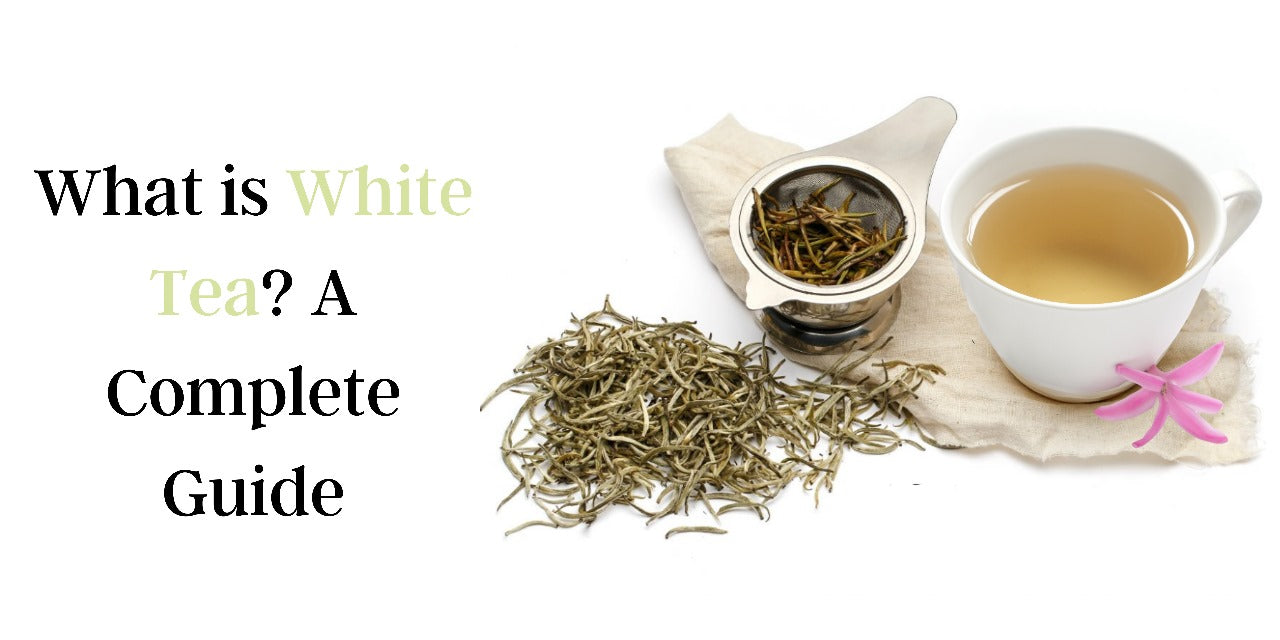White tea, derived from the Camellia sinensis plant, is a delicate and minimally processed tea variety that offers a range of health benefits. In this article, we'll delve into the many benefits of adding white tea to your daily routine. From its rich antioxidant content to its potential for reducing the risk of chronic diseases, white tea has gained recognition for its positive impact on overall well-being.
White tea is renowned for its unique harvesting process, gathering the young buds before they fully open, still adorned with delicate white hairs that lend the tea its name. The young buds and delicate leaves are harvested from the latest growth on the tea plant, are meticulously handpicked, and are promptly subjected to a meticulous drying process. Unlike leaves destined for green or black tea, these white tea leaves undergo minimal processing and experience less oxidation. This meticulous treatment yields some of the most exquisite and freshest tea one can find.
The Origins of White Tea
White tea has a centuries-old rich history. In ancient China's Song Dynasty, white tea enjoyed an esteemed reputation as a luxurious commodity and was even presented as a tribute to the emperor. In the present day, a range of white tea varieties, such as silver needle, white peony, Ceylon white, Darjeeling white, and white pu-erh, are cultivated and valued globally.
The amazing health benefits of white tea
The Antioxidant Powerhouse
One of the standout features of white tea is its high antioxidant content. Antioxidants like polyphenols, flavonoids, and tannins are vital for shielding the body from damage caused by free radicals. These unstable molecules have the potential to contribute to chronic health issues like heart disease, diabetes, and certain types of cancer.Introducing white tea into your diet can enhance your antioxidant intake, potentially lowering the risk of these conditions.
Promoting Heart Health
Heart disease stands as a prominent cause of global mortality, underscoring the importance of integrating heart-healthy habits into your lifestyle. Research indicates that incorporating white tea into your routine may reduce the risk of heart disease. The polyphenols present in white tea have been found to relax blood vessels and reduce the oxidation of "bad" LDL cholesterol, both of which are risk factors for heart disease. By including white tea in your daily routine, you can support your cardiovascular health.
Managing Blood Sugar Levels
Insulin resistance, a condition in which the body does not respond effectively to insulin, can lead to metabolic issues such as diabetes and metabolic syndrome. Some research says that white tea can enhance insulin sensitivity, and also reduce the risk of insulin resistance. While more studies are needed to fully understand the impact of white tea on blood sugar levels, its potential as a natural aid for managing metabolic health is promising.
The Fight Against Cancer
White tea has shown promise in its potential to combat cancer. Test tube studies have indicated that the compounds found in white tea can inhibit the growth of cancer cells and prevent their spread. Particularly in lung and colon cancers, white tea has demonstrated its ability to reduce the growth and proliferation of malignant cells. Although additional research is needed to confirm these findings, including white tea in your diet could be a positive measure in cancer prevention.
Supporting Dental Health
White tea can play a role in promoting dental health by strengthening tooth enamel and inhibiting the growth of cavity-causing bacteria. Adding white tea to your routine may help in maintaining healthy teeth and lowering the risk of dental cavities.
Strengthening Bones
Osteoporosis, a condition characterized by the weakening of bones, affects a significant portion of the population, particularly older individuals. White tea, rich in catechins, may offer a potential safeguard against osteoporosis. The catechins found in white tea can inhibit bone breakdown, promoting bone growth and density. Introducing white tea into your daily routine may contribute to support bone health as you age.
Enhancing Brain Function
Maintaining cognitive health is a priority for many individuals, and white tea may offer benefits in this area. Compounds present in white tea have demonstrated the potential to reduce the risk of neurodegenerative diseases like Alzheimer's and Parkinson's. These compounds help prevent the clumping of proteins, which is a significant factor in the development of these conditions. By including white tea in your diet, you may support brain health and reduce the risk of age-related cognitive decline.
Protecting Skin Health
White tea has been discovered to decelerate the aging process, addressing both external and internal factors. When applied topically, white tea serves as a shield against UV damage, while its polyphenols combat free radicals, diminishing premature aging and fostering a youthful complexion.
Aiding Weight Loss
For individuals looking to manage their weight, white tea may provide a natural boost. White tea, with its moderate caffeine content and the inclusion of catechins, holds the potential to boost metabolism and encourage fat burning. While white tea alone is not a solution for weight loss, incorporating it into a balanced diet and exercise routine may support your weight management goals.
Promoting Overall Well-being
In addition to its specific health benefits, white tea offers a range of advantages for overall well-being. Its gentle flavor and low caffeine content make it a soothing and refreshing beverage choice. White tea can help with hydration, a vital factor for maintaining optimal bodily functions. Include white tea in your daily routine to relish its potential health perks while savoring a delightful and rejuvenating beverage.
A Simple Guide to Including White Tea in Your Daily Routine
Enjoying white tea daily is easy and delightful. For the perfect cup, follow these steps:
- Boil water and let it cool for a minute or two until it reaches 170-185°F (75-85°C).
- Drop 2 to 3 white tea leaves into the boiling water.
- Allow the tea to steep for 3-5 minutes, adjusting the time to achieve your desired strength.
- Remove the tea leaves or tea bag and relish your freshly brewed white tea.
- Keep in mind that white tea can be enjoyed hot or cold, offering a refreshing choice all year round.
In Conclusion
From supporting heart health to enhancing brain function and maintaining skin health, white tea provides a range of advantages for overall well-being. By incorporating white tea into your routine, you can enjoy its delicate flavor while gaining potential health perks. Embrace the goodness of white tea and enhance your wellness journey today.




